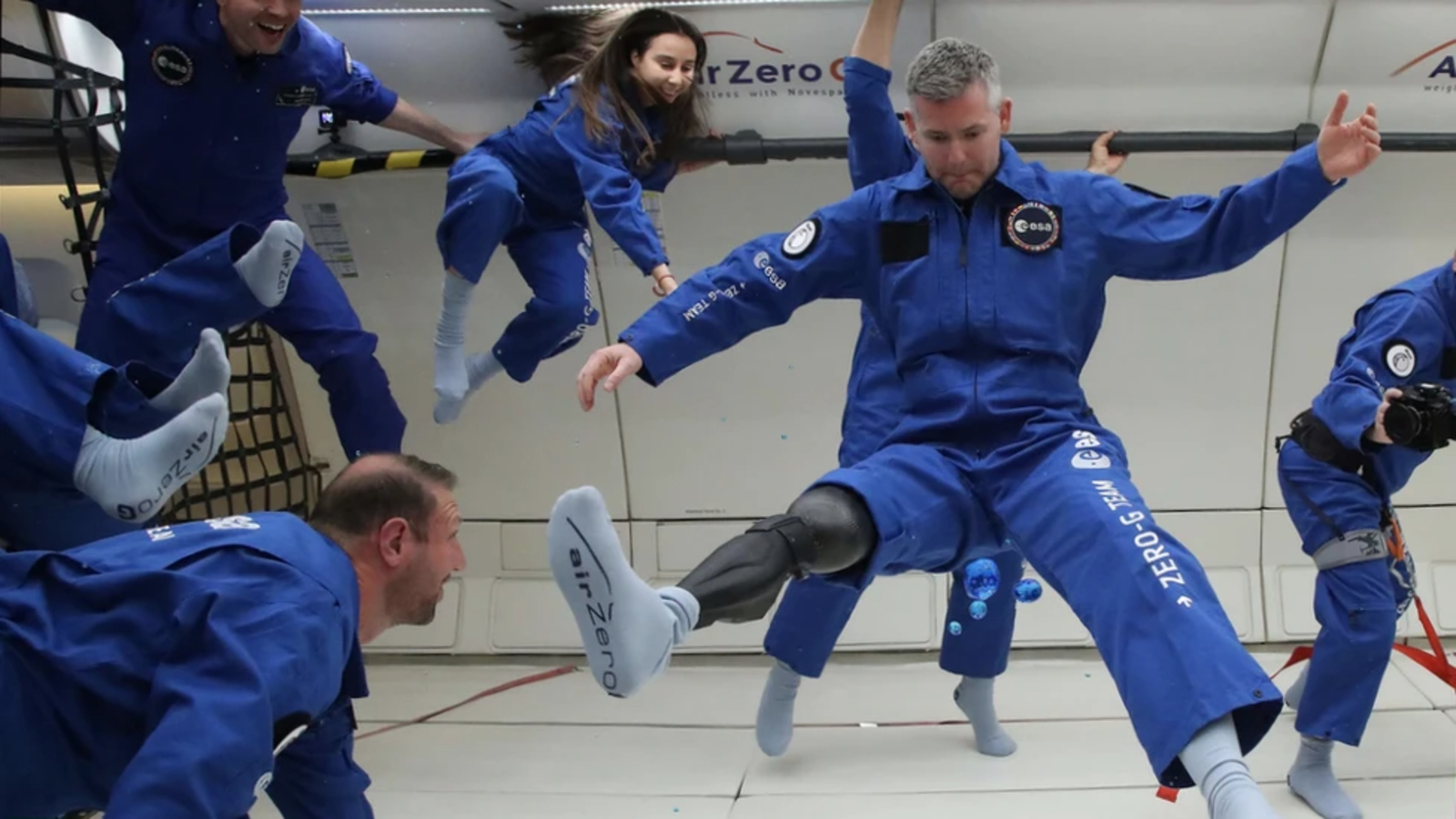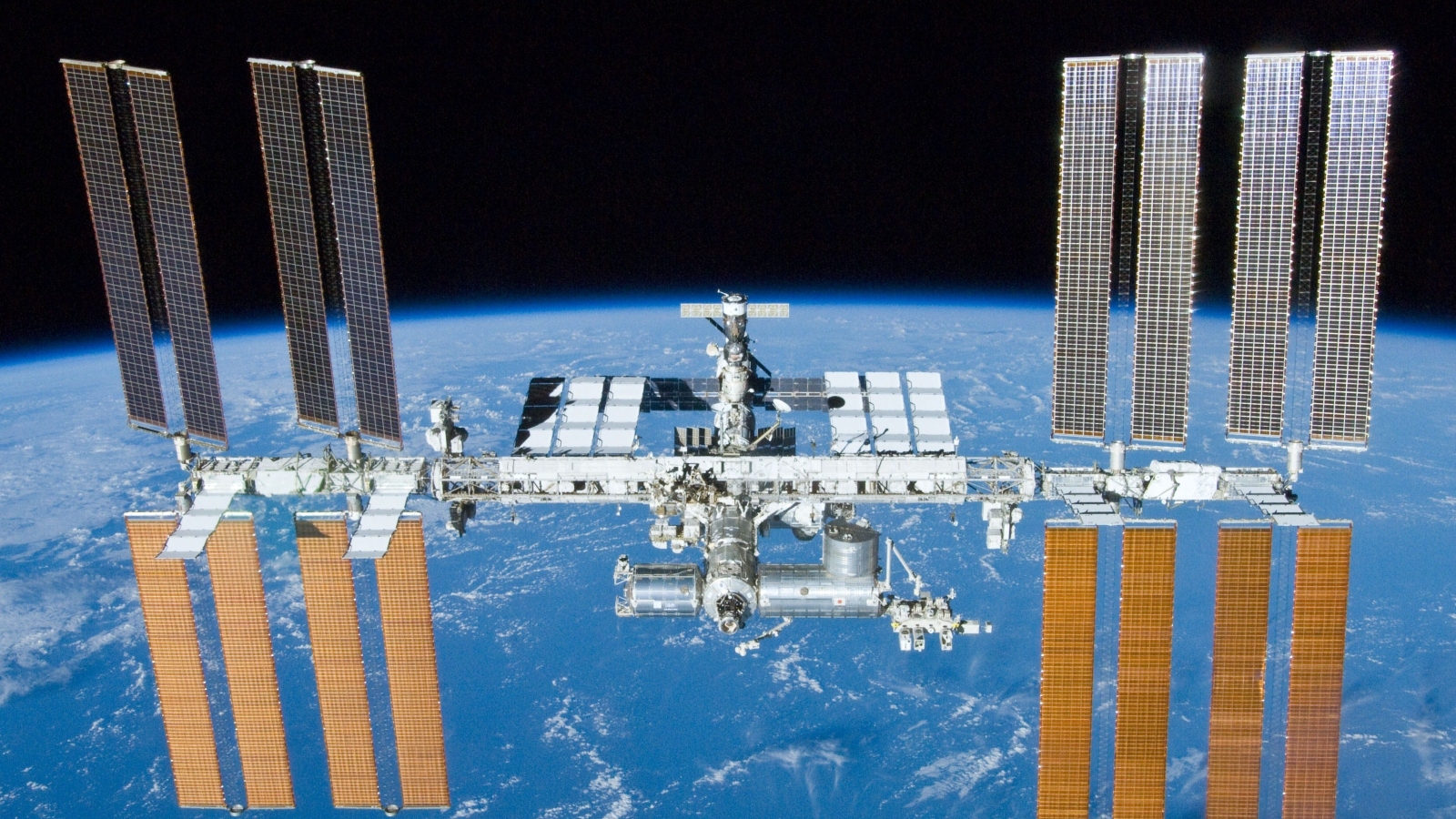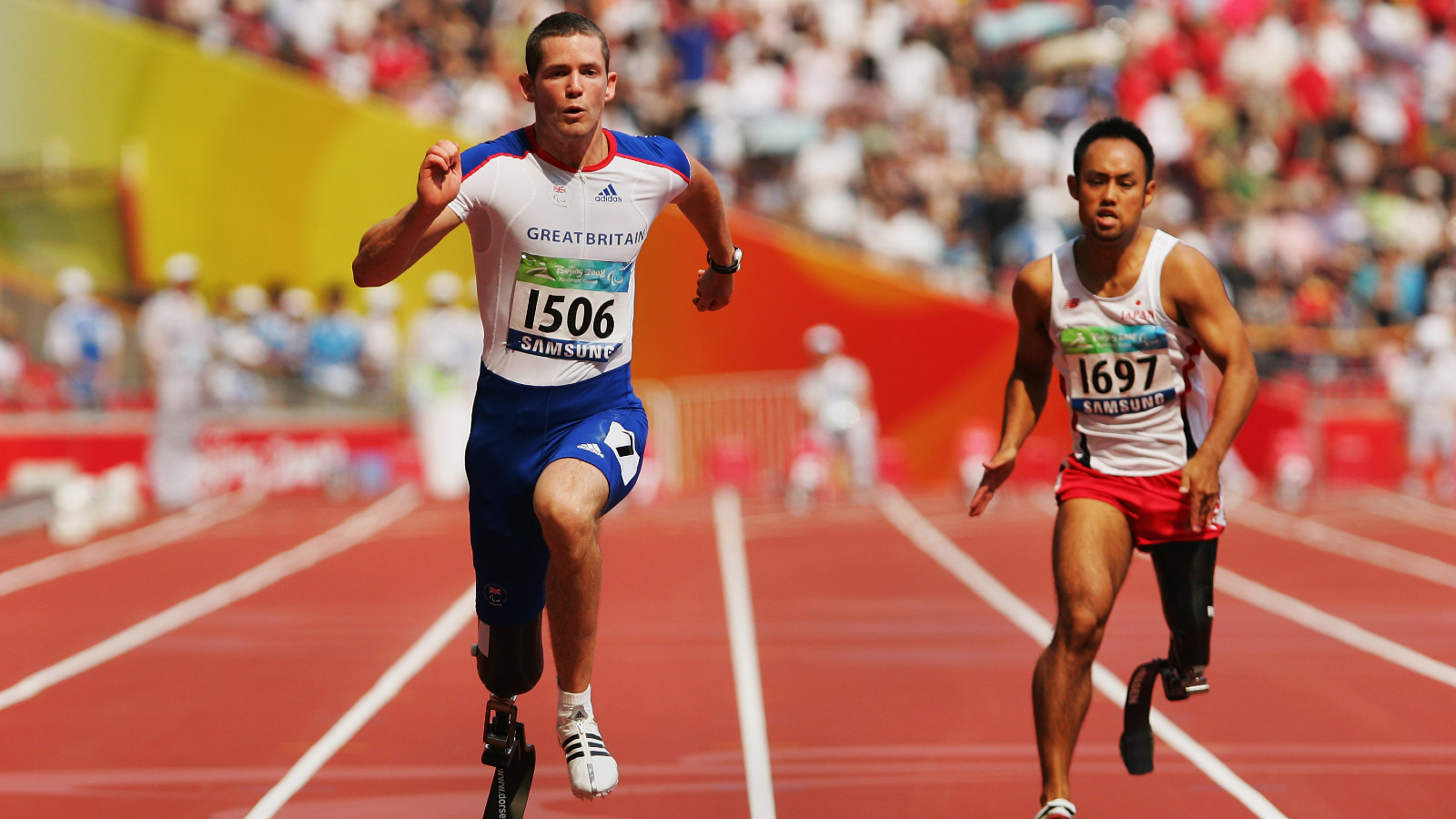'Hugely proud': UK Paralympian becomes 1st disabled astronaut to be cleared for ISS mission
Prospective ESA astronaut and former British Paralympian John McFall has passed the medical assessment needed for a long-term stay on the ISS. If selected for a future mission, he will become the first physically disabled person in space.

A former U.K. Paralympian has been given the green light to undertake a future mission to the International Space Station (ISS), which would make him the first person with a physical disability to travel to space.
John McFall, 43, is an orthopedic surgeon and former medal-winning Paralympic sprinter who has represented Great Britain at multiple competitions. He had his right leg amputated above the knee when he was 19 years old after a motorcycling accident. McFall joined the European Space Agency (ESA) in 2022 as part of the agency's "Fly!" program to assess the feasibility of someone with a prosthesis becoming an ISS crew member.
On Friday (Feb. 14), ESA announced in an online media briefing that McFall has passed the medical tests needed to undertake a long-term ISS mission and is now on the waiting list to travel to the space station.
McFall said that he was "hugely proud" to be cleared for a future ISS mission. "This is way bigger than me — this is a cultural shift," he said during the briefing.

McFall is now fully qualified to become an astronaut but is currently not scheduled for a specific mission.
"Now he's an astronaut like everybody else who wants to fly to the space station, waiting for a mission assignment," Daniel Neuenschwander, the director of human and robotic exploration at ESA, said during the briefing.
Sign up for the Live Science daily newsletter now
Get the world’s most fascinating discoveries delivered straight to your inbox.
However, ESA has previously stated that the agency wants to send a disabled person to the ISS before the space station is decommissioned, which is currently scheduled to happen at some point after 2030.
"At this stage, it's looking very positive," McFall told the BBC's Sky At Night Magazine in 2024. "I think [it could happen] within the next few years."
'A cultural shift'
McFall is now in line to become the first para-astronaut. However, he has previously pushed back against using the "para" prefix to describe himself.
"I'm not a para-surgeon, I'm a surgeon. I'm not a para-dad, I'm a dad," McFall told The Guardian in 2024. "I think that if we continue to use [the 'para' prefix], it probably continues to create a divide, which isn't necessary."

The new announcement comes during a period of uncertainty surrounding diversity, equity and inclusion (DEI) in space, following a wave of controversial changes at NASA imposed by the new Trump administration.
"We are now entering a world which is changing a bit from a DEI perspective from one of our [ISS] partners," Neuenschwander said during the conference.
In the last few weeks, NASA has been ordered to end all DEI initiatives, altered web pages celebrating female scientists and allegedly told workers to purge workspaces of LGBTQI+ symbols.
However, all ISS partners — including the U.S. — cleared McFall for a future ISS mission, according to French news agency AFP.

Harry is a U.K.-based senior staff writer at Live Science. He studied marine biology at the University of Exeter before training to become a journalist. He covers a wide range of topics including space exploration, planetary science, space weather, climate change, animal behavior and paleontology. His recent work on the solar maximum won "best space submission" at the 2024 Aerospace Media Awards and was shortlisted in the "top scoop" category at the NCTJ Awards for Excellence in 2023. He also writes Live Science's weekly Earth from space series.
You must confirm your public display name before commenting
Please logout and then login again, you will then be prompted to enter your display name.









